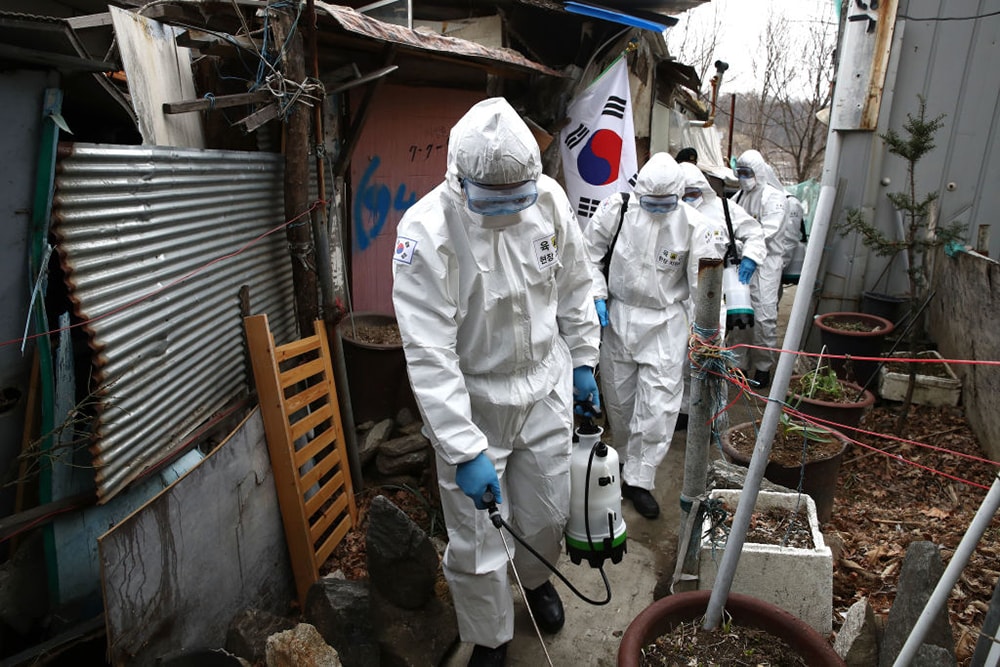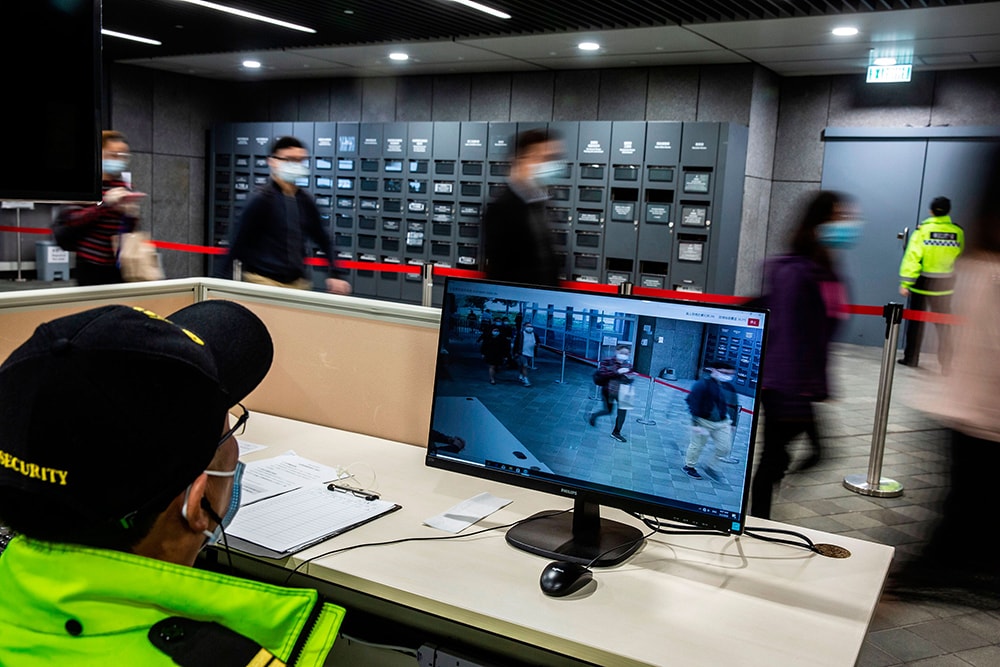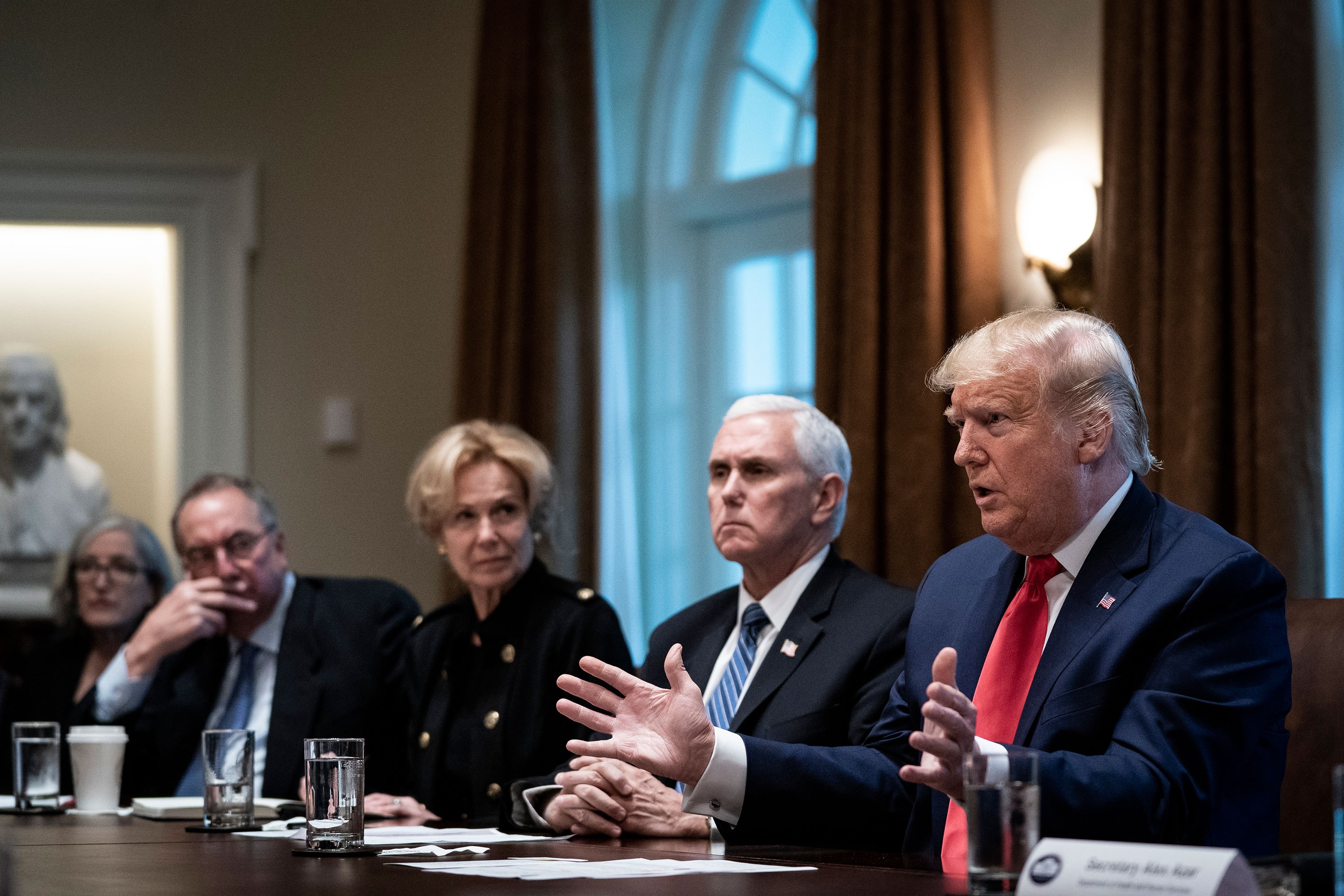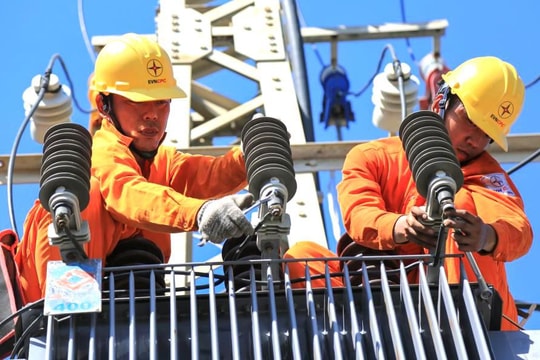Covid-19 'earthquake' and WHO's warning
(Baonghean) - The disease caused by the new strain of Corona virus (Covid-19) is spreading rapidly around the world, with more than 90,000 infected cases in 80 countries and territories. The "earthquake" in the health sector has caused the head of the World Health Organization (WHO) to warn that health officials are operating in "uncharted territory".
Virus "covers" everywhere
Since first being detected in the central Chinese city of Wuhan, Covid-19 has spread to every continent except Antarctica. Health workers are battling deadly outbreaks in South Korea, Iran and Italy, while other countries are scrambling to avoid a similar fate by preparing public health facilities, warning citizens to be vigilant and imposing travel restrictions to affected areas.
As of March 3, 172 deaths from Covid-19 have been recorded outside mainland China, bringing the global death toll from the virus to 3,115.
 |
| South Korean soldiers wearing protective gear spray disinfectant in Guryong village, Seoul on March 3. Photo: Getty |
Several countries that have recorded cases of infection are now aggressively applying measures to limit the spread of the disease, typically suspending schools, encouraging workers to work remotely and canceling or reducing the scale of crowded events... Although the WHO has not yet classified the serious incident caused by Covid-19 as a global epidemic, it has frankly warned that it is a possibility that can happen in the near future.
“Knowing and understanding an epidemic is the first step towards defeating it,” Tedros Adhanom Ghebreyesus, director-general of the global health watchdog, tweeted on March 3. “We are in uncharted territory with Covid-19. We have never before seen a respiratory pathogen with the capacity to spread in the community, but it can still be contained with the right measures.”
Investors are also considering the risk that the spread of Covid-19 could push the world economy into recession. This is possible because the epidemic spreading in China, the world's second-largest economy and a major manufacturer, has led to many factory closures, significantly affecting the global supply chain.
 |
| A series of stores in the epicenter of the epidemic in Wuhan, China, closed due to Covid-19. Photo: Reuters |
According to the latest update, at least 80,151 cases have been confirmed in mainland China, killing 2,943 people. However, the economic impact of this deadly virus goes far beyond the country of a billion people, and the virus is now affecting business activities and consumer behavior around the world. The Organization for Economic Cooperation and Development (OECD) warned on March 2 that the Corona virus has "thrown" the world economy into the worst "pit" of recession since the global financial crisis in 2009, and growth could be lost by half if the epidemic continues unabated.
Complex areas
One notable thing in the past few days is that the Corona virus epidemic is showing signs of stabilizing in many areas of China after weeks of emergency measures and travel restrictions, while outside the country, cases seem to be spreading at a much faster rate. On March 2, WHO recorded that within 24 hours, the number of Covid-19 cases outside China was 9 times higher than the number of new infections detected in the country. According to the National Health Commission (NHC) of China, on March 2, there were 125 new infections confirmed, of which 114 were in Hubei, where the "epicenter" is Wuhan city. Outside of mainland China, South Korea, Iran and Italy are the names facing the most serious outbreaks.
 |
| Monitoring the body temperature of people entering and leaving a government building in Hong Kong, China on March 2. Photo: AFP |
On March 3, officials in Seoul said more than 4,800 cases had been confirmed, resulting in 28 deaths. Italian officials reported at least 1,835 cases and 52 deaths. Iran reported at least 1,500 cases and 66 deaths, including an adviser to the country's Supreme Leader Ayatollah Ali Khamenei.
In response to the alarming news, some of Iran's neighbors have taken steps to prevent the spread of the virus, including closing their borders with the country. Officials in the Old Continent are also taking early precautions. Some governments are banning large gatherings to prevent community transmission, as well as closing public spaces such as the Louvre in Paris or La Scala in Milan. Crowded events such as the Paris half marathon have been canceled, and a French official has advised against the traditional greeting of kissing on both cheeks to avoid close contact that could spread the virus.
Earlier this week, at a press conference, European Commission (EC) President Ursula von der Leyen also announced that the European Union (EU) had raised the alert level for the new strain of Corona virus from medium to high, expressing concern over the fact that more than 2,000 cases of infection had been confirmed in the EU, most of which were in Italy.
 |
| Medical staff carry the first person infected with Covid-19 in the German state of North Rhine-Westphalia from an ambulance into the Infection and Liver Center of the University Hospital in Duesseldorf on February 26. Photo: AP |
In the US, the number of infections is also on the rise, with more than 100 confirmed cases now following a new surge in Washington state, where six people have died. Four of those deaths were at a facility in Kirkland, a suburb of Seattle, easing concerns that the virus has spread throughout Washington in recent weeks or days. Washington remains the only US state to have reported a fatal case of Covid-19.
At businesses, the new cases have prompted their own proactive measures. Twitter, for example, is asking employees to work from home, Carnival Cruise Line is changing some itineraries, and the NBA is asking players to avoid accepting gifts from fans to sign and recommending that strangers greet each other with fist bumps instead of high fives. Still, federal public health authorities have issued several calls for calm and not panic.
President Donald Trump said Monday he was still considering additional travel restrictions from countries with serious outbreaks. Vice President Mike Pence, who has been appointed to lead the US coronavirus response, said new travel advisories have been put in place for Italy and South Korea, and anyone arriving in the US on flights from those two countries will have to undergo extensive screening before arriving. He also reminded Americans that the virus is not a major threat, saying that after consulting with experts, the risk to them remains low.
 |
| US President Donald Trump met with the White House Coronavirus Task Force and pharmaceutical executives in Washington on March 2. Photo: Getty |
In short, although we cannot and should not panic too much about the current situation of the Corona virus epidemic, subjectivity and negligence are words that cannot be in the world's dictionary before Covid-19. Just a small move by a few countries and territories can decide whether to push humanity to the brink of a "global epidemic", and also determine whether we can control the "unexplored territory" caused by Covid-19 or not?




.jpg)
![[Infographics] 5 biện pháp phòng, chống dịch COVID-19 [Infographics] 5 biện pháp phòng, chống dịch COVID-19](https://bna.1cdn.vn/thumbs/540x360/2025/05/22/anh-2.jpg)

-5b8619d675cc4f38cedd8c853332ddab.jpg)
